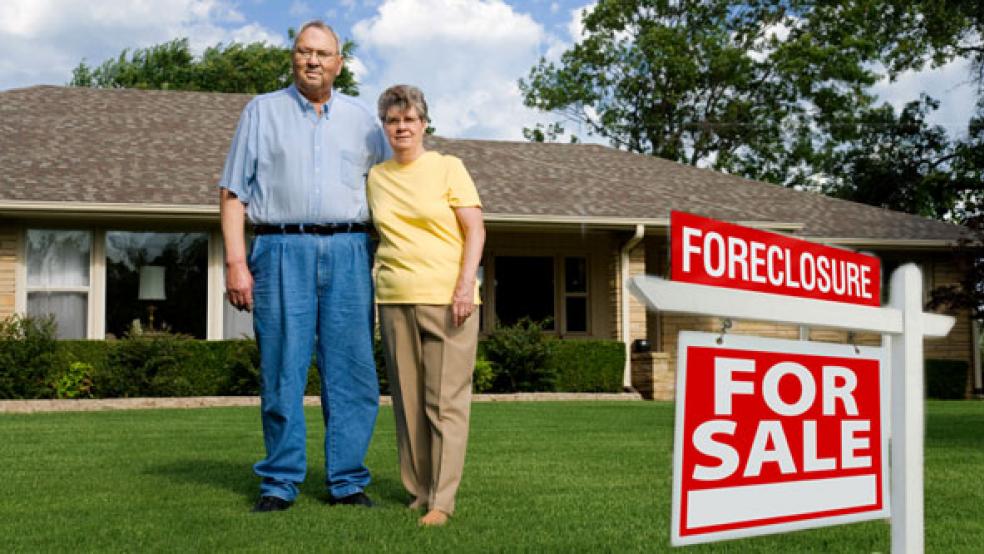Retirement and old age is typically associated with stability and relaxation. But after the mortgage meltdown, many seniors have found just the opposite. According to a report released Thursday by the AARP, Americans over 50 are facing unprecedented financial hardship.
In the first study to look at how the crisis affected people older than 50, researcher Lori Trawinski found that between 2007 and 2011, the rate of serious delinquencies actually grew faster among that group than younger homeowners. Overall, the study found that about 3.5 million loans (16 percent) held by people age 50 or older were underwater, 600,000 were in foreclosure, and another 625,000 were 90 or more days delinquent. That’s in addition to the 1.5 million older Americans who lost their homes during these five years.
RELATED: 5 Shocking Predictions about Retirement in America
Though the AARP didn’t do a geographic analysis of the data, many retirees live in epicenters of the collapse—Florida, Arizona, and Nevada, for example, and were vulnerable to the housing price collapse that decimated house prices nationally. More broadly though, the finances of older Americans are not as robust as in the past, says Debra Whitman, AARP executive vice president for policy. They are living longer and running through their retirement money, and many deal with huge unexpected health care costs. Some were also targeted by predatory lenders – purchasing a home with an adjustable-rate mortgage, or taking out a second mortgage on their current home. A study last year from the University of Michigan Law School found that those 65 and older are the fastest-growing segment of the U.S. population filing for bankruptcy and that older Americans carry 50 percent more credit card debt than younger debtors.
That’s not news to Derek Runion, who runs the government-certified housing counseling agency All-American Housing Solutions in Cape Coral, Florida. One of his clients is a 72-year-old retiree who sank her savings into a large down payment on her house in 2005. Now that the home has lost much of its value, she’s left with about $5,000 in equity and is returning to work. “It’s a common situation here in southwest Florida,” he says.
Especially surprising is the number of people older than age 75 who have home loan trouble. The foreclosure rate in this group grew from about .4 percent to about 3.2 percent in the five years covered by the research—a 700-percent increase. And since 1989, the proportion of those older than age 75 who carry mortgage debt has quadrupled from 6 to 24 percent—an unusual trend for a group who traditionally have paid off their mortgages by that age.
RELATED: The Underwater Retirement: Home Values Ruin Dreams
The challenges seniors face to dig themselves out of a mortgage hole are much greater than for younger people. Whitman cites a recent national study showing that two-thirds of people ages 75 and older have no money in their retirement accounts. And unlike younger people, they can’t hope for future high-earning working years to rebuild their lost savings.
Worse, they’re headed into a period of life when they’ve traditionally used the equity in their house to finance high medical costs or the price of an assisted-living facility. “When they lose their house, it’s the last piece of equity they were going to rely on for the rest of their life,” Whitman says.
The report’s recommendations include offering principal reduction modifications to homeowners with loans held by Fannie Mae and Freddie Mac, providing more subsidized rental housing for older Americans who have lost their homes, and offering short-term financial assistance to those who are stuck in underwater homes.
Failing that, many of those who have lost their homes will end up relying on their kids, says Whitman. “I think a lot of children of these folks are going to give up their guest rooms for at least a while,” she says, noting that she has a family member in that circumstance. “It’s the worst of all worlds.”





